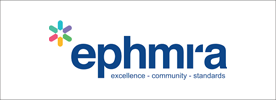Digital health tracking apps have surged in popularity in recent years, becoming a foundation of modern wellness and healthcare. These applications, which allow users to monitor various aspects of their health through their smartphones, are changing how personal health management is approached.
The adoption of digital health tracking apps has seen an increase, driven by the growth of smartphones and wearable technology. Research from Market.us earlier this year reveals that “the market size for fitness apps is predicted to exceed 25.9 USD by 2033.” This growth is fuelled by a rising awareness of personal health, an increase in chronic diseases, and the need for efficient health monitoring solutions.
Benefits and Challenges
The growing popularity of these apps brings a variety of benefits to users, from enhanced convenience to personalised health insights. However, it also introduces several challenges, such as concerns over data privacy and the accuracy of the information provided.
Pros of Digital Health Tracking Apps- Convenience: These apps offer users the ability to track their health metrics anytime and anywhere. This convenience can lead to better adherence to health and fitness routines.
- Personalisation: Many apps use algorithms to provide personalised health insights and recommendations based on user data. This can help individuals tailor their health regimens to meet specific needs and goals.
- Motivation: Goal setting, reminders, and progress tracking features can motivate users to maintain healthy habits. Some apps even incorporate social elements, allowing users to share their progress with friends and family.
- Data Integration: Many apps can sync with other devices and platforms, such as fitness trackers, smartwatches, and electronic health records, providing a comprehensive view of one's health.
- Preventive Care: By monitoring health metrics regularly, users can identify potential health issues early and seek timely medical advice, potentially preventing more serious conditions.
- Data Privacy and Security: The collection of sensitive health data raises concerns about privacy and security. Users must trust that their information is protected against breaches and misuse.
- Accuracy: While many apps are highly accurate, others may provide unreliable data due to poor sensor quality or software glitches. This can lead to incorrect health assessments.
- User Engagement: Maintaining long-term engagement with health tracking apps can be challenging. Users may lose interest or forget to log their activities consistently.
- Health Anxiety: Constant monitoring and tracking can sometimes lead to increased health anxiety, with users becoming overly concerned about minor fluctuations in their data.
Popular Health Tracking Apps
Several health tracking apps have gained widespread popularity due to their user-friendly interfaces, various features, and ability to integrate with other health and fitness devices. Examples of these apps include:
- MyFitnessPal: Known for its extensive food database and calorie tracking features.
- Strava: Popular among runners and cyclists for tracking workouts and connecting with a community.
- Fitbit: Offers tracking of various health metrics and integrates seamlessly with Fitbit devices.
- Apple Health: Aggregates health data from multiple apps and devices, providing a broad view of users’ health.
- Google Fit: Provides an overview of users’ fitness metrics and integrates with several other health apps and devices.
- Samsung Health: Tracks a wide range of health metrics and offers personalised fitness plans.
Impact on Healthcare Market Research
The growing use of health tracking apps is impacting healthcare market research in several ways, providing opportunities for data collection and analysis, improving patient engagement and adherence to treatment plans, and providing valuable insights into emerging market trends and consumer behaviours.
- Data Collection
- Market Trends
- Research and Development
These apps generate vast amounts of data from millions of users worldwide, covering metrics like physical activity, heart rates, sleep patterns, and dietary habits. This data provides researchers with a rich resource to analyse correlations, trends, and potential health risks. Using big data analytics and machine learning, researchers can uncover previously unattainable insights.
Data from health tracking apps offer insights into market trends and consumer behaviour in the health and fitness sector. Analysing usage patterns, preferences, and demographics help companies identify emerging trends and tailor products to meet consumer demands.
The data from these apps can facilitate the research and development of new healthcare solutions. Pharmaceutical companies can use this data to understand patient needs and responses to treatments, leading to more effective drugs and therapies. Similarly, fitness and wellness companies can innovate new products based on user insights. Collaborative research between app developers, healthcare providers, and academic institutions drives innovation, advancing medical science and technology.
Conclusion
Digital health tracking apps are here to stay, offering numerous benefits while also posing some challenges. As the market continues to grow, these apps will play an increasingly important role in personal health management and the broader healthcare industry. With careful consideration of privacy and accuracy issues, they hold the potential to change how we approach health and wellness.
Are you interested in learning more?





